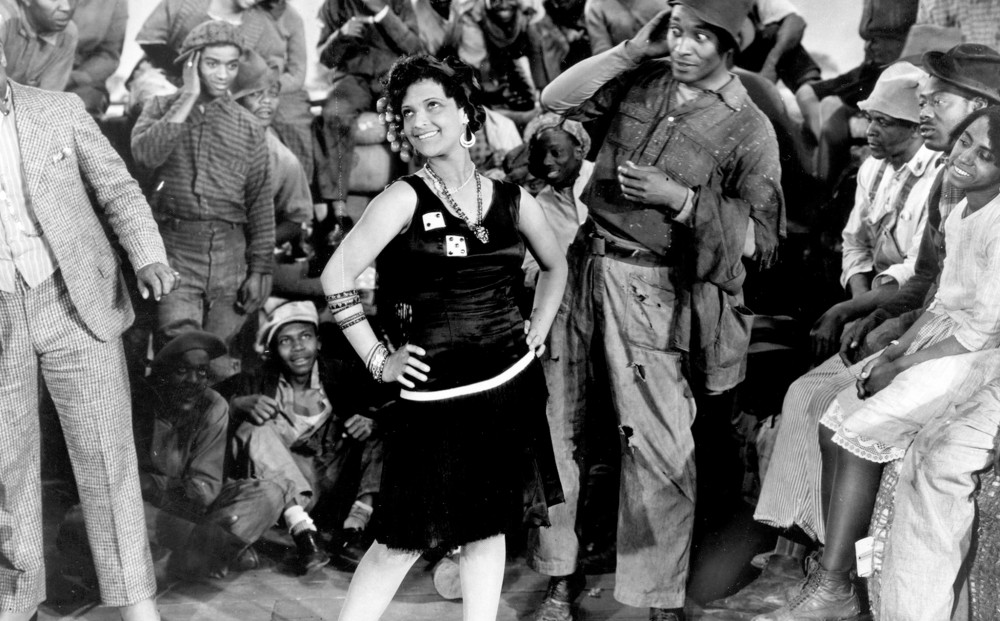Nina Mae McKinney in
HALLELUJAH!
Wednesday, November 10
6:30
NEW 35mm RESTORATION
Introduced by author and historian Donald Bogle in conversation with Bruce Goldstein
Post-Screening talk with David Pierce of the Library of Congress and Margaret Bodde of The Film Foundation
(1929, King Vidor) Vidor brought musicals into the open air with his talkie debut, a kinetic, soulful, all-Black masterpiece shot in the backwoods of Texas cotton country, with authentic spirituals uneasily mingled with some jazzy Irving Berlin tunes. 35mm print restored by the Library of Congress and The Film Foundation. Funding provided by the Hobson/Lucas Family Foundation.
Plus short PIE, PIE, BLACKBIRD (1932) with Eubie Blake & Orchestra and the Nicholas Brothers. Full program approx. 120 min.
Reviews
“One of Hollywood’s most important all-Black films—and also one of the first to be made within the established film community…Shot partly on location in the swamps and forests of Tennessee and Arkansas, the film has long stretches of beauty and power: the lines of white-robed black supplicants awaiting baptism form an image that never leaves you… McKinney, the actress, is energy incarnate and delirious fun to watch: a footloose fancy-free kewpie doll of a star whose fearlessly kinetic Swanee Shuffle is a predecessor to the break dance maneuvers of the 1980s… In due time, Hallelujah set the tone for the treatment of Negro casts and themes in films by presenting them in idealized, isolated worlds—and the film also became an authentic American classic.”
– Donald Bogle, Hollywood Black: The Stars, the Films, the Filmmakers
“About 20 minutes into Hallelujah, Nina Mae McKinney appeared on screen as Chick, a singer and dancer, in a sexy flapper dress. She had flashing eyes, an armful of jangly bracelets, and no qualms about cheating a handsome young cotton farmer out of the money he had just gotten for his family’s crop. Chick showed off her talents doing the Swanee Shuffle; flirted shamelessly while close-dancing with the farmer (Daniel L. Haynes); and sweet-talked him into a fateful dice game with a con man… McKinney would soon be called the first Black movie star.”
– Anita Gates, The New York Times

